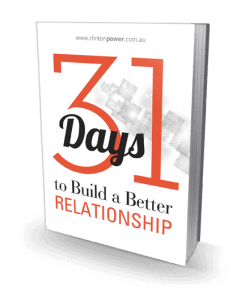The Dangerous Effect of Homophobia on Young People
Recently, Australia’s Coalition politicians successfully won support for a delay on voting on the bill that might grant religious schools the ability to discriminate against LGBTQIA students. This has caused outrage among the Labor party’s politicians, who say that Coalition stated themselves to be in favour of discrimination protections.
Because of the delay, laws against LGBTQIA discrimination in schools will not be passed this year.
In addition to supporting this bill, Labor will introduce another bill early next year, which would prevent religious schools from discriminating against staff members based on sexual orientation or gender identity.
After centuries of anti-LGBTQ sentiment, arguments like this unfortunately continue. How does all of this politicking affect the students in question? How much does this really matter to the young people of Australia?
Well, homophobia in schools could be a matter of life or death.
What is homophobia?
Discrimination, defined by unjust or prejudicial treatment, is a problem that affects groups of people based on a certain inherent trait. It commonly rears its head as actions and attitudes against the wellbeing of women or people of colour, but affects other groups as well.
Homophobia is the specific type of discrimination that affects LGBTQIA people or people perceived as belonging to this group. While some take issue with the name of the problem (preferring, for example, “heterosexism”) there is no doubt that it is a serious problem affecting large portions of the population—about 10% according to studies.
Let’s be more specific. Homophobia can look like:
- Revulsion or disgust aimed at LGBTQIA people
- Fear of being associated with LGBTQIA people
- Negative beliefs about LGBTQIA people, including that they are sinful, immoral, or inferior
- Refusing someone service or employment because they are or seem to be LGBTQIA
- The belief that LGBTQIA people are inherently mentally ill or confused
- Refusing to acknowledge someone’s sexual orientation or gender identity
- The use of language that demeans LGBTQIA people, including slurs
- Shunning or ostracising LGBTQIA people socially
- The expectation that people are straight and cisgender
- Legal punishment for sexual or gender-based behaviour associated with LGBTQIA people
- The inability of same-gender couples to get married
- Corrective rape — the rape of gay men and lesbians to “cure” them of their sexual orientation.
- Violence, abuse, hate crimes, and murder
- And more
Why is it important that homophobia is eradicated in schools?
Enduring any type of discrimination, including homophobia, is an experience that can severely affect someone’s mood and overall mental health, including the young and psychologically vulnerable.
Deciding to come out about your sexual orientation and/or gender identity can be an intensely stressful situation, especially if you’re expecting rejection, ridicule, and/or ignorance in return. This sense of ostracisation can be made even worse by all the social stressors of high school and young adulthood—acceptance and a sense of belonging are tantamount for people in these groups.
Therefore, stress is elevated in LGBTQIA young people. These experiences of discrimination and homophobia can compound existing life problems and amplify mental health conditions like anxiety, depression, and self-harm—even suicide. Other impacts can include low self-esteem and confidence, poor concentration and school performance, and social isolation.
What can schools do to reduce homophobia?
Besides supporting these laws that reduce discrimination against LGBTQIA teenagers, what can we do to reduce homophobia in schools?
- Educate staff and students about current LGBTQIA issues, including discrimination and homophobia.
- Encourage curriculum that includes LGBTQIA people from history. (After California’s adoption of this policy, LGBTQIA students reported feeling safer in their classrooms. This sense of safety is critical to learning and a lack can be an enormous distraction from academic success.)
- Allow LGBTQIA teachers and staff to be vocal about their sexual orientation and/or gender identity and share their experiences with students and other staff.
- Instate a bullying no-tolerance policy and make it clear to students that homophobia will not be ignored
- Bring in speakers to talk about LGBTQIA issues and experiences.
- Make LGBTQIA role models commonplace.
- Publicly voice and display pro-LGBTQIA sentiments.
- Offer support and resources to LGBTQIA students who are experiencing bullying or mental health problems.
- Address homophobic language, even if it seems to be a minor problem.
- Avoid assuming that all students are heterosexual and cisgender.
The government must remove these discriminatory laws from schools to protect the mental health and wellbeing of vulnerable populations of young people and to reduce the rate of both mental disorders and suicide.
We can only hope that the Australian government expedites the removal of these discriminatory laws as soon as possible in the New Year.
Are you an LGBTQI+ person who is struggling in your life or relationships?
If so, contact Sydney Gay Counselling on (02) 8968 9323 to find out how we can help or book an appointment online.

